Critics Say SOFA in Korea More Unfair Than Those elsewhere
Many scholars and critics blast the SOFA in Korea as having many more unfair clauses than those in Japan and Germany.
The United States claims the SOFA has more favorable clauses than those in Japan and Germany and was modeled after them.
The Taejon Treaty signed in 1950 served as the early blueprint for the SOFA in Korea, which was enacted in 1966. The SOFA in Japan took effect in 1960 and that in Germany in 1963.
Critics say the SOFA in Korea is geared to strongly benefit the U.S. Forces Korea (USFK).
The auxiliary records to the SOFA restrict clauses in the agreement, eventually infringing on national sovereignty and human rights, they say.
Compared to the SOFA in Japan, the most unfair clause of the SOFA in Korea is seen as the one on detention and delivery of USFK suspects.
While Japanese authorities can detain U.S. suspects after arrest, Korean authorities cannot until the end of the relevant trials even in the case of crimes such as murder, robbery and rape.
Japanese investigators can continue to detain U.S. suspects as long as they have a rationale to do so after catching them.
In Korea, investigators must notify the USFK after apprehending U.S. servicemen suspected of crimes and hand them over immediately.
In Germany, U.S. forces there are allowed to detain suspected American servicemen until their final sentences are handed down. But German authorities can ask U.S. forces to hand over suspects in special cases, and the latter must consider the request favorably.
Furthermore, the SOFA in Korea bans prosecutors from appealing to higher courts after a suspect is found not guilty, unlike in Japan.
The SOFA stipulates that Korean authorities cannot exercise jurisdiction on crimes committed by U.S. servicemen during their official duties.
In this case, it calls for the general-level USFK officers to judge whether relevant things are official duties or not, raising fear of the possibility of arbitrary judgements.
But in Japan, the SOFA calls for immediate superiors of the suspects to issue certification on official duties and allows Japanese courts to intervene in the final judgement.
스마터리빙
more [ 건강]
[ 건강]이제 혈관 건강도 챙기자!
[현대해운]우리 눈에 보이지 않기 때문에 혈관 건강을 챙기는 것은 결코 쉽지 않은데요. 여러분은 혈관 건강을 유지하기 위해 어떤 노력을 하시나요?
 [ 건강]
[ 건강]내 몸이 건강해지는 과일궁합
 [ 라이프]
[ 라이프]벌레야 물럿거라! 천연 해충제 만들기
 [ 건강]
[ 건강]혈압 낮추는데 좋은 식품
[현대해운]혈관 건강은 주로 노화가 진행되면서 지켜야 할 문제라고 인식되어 왔습니다. 최근 생활 패턴과 식생활의 변화로 혈관의 노화 진행이 빨라지고
사람·사람들
more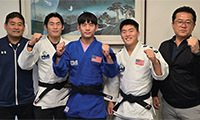
[화제] 유도 미 국가대표 3형제… “LA 올림픽 금메달 위해 구슬땀”
3형제가 나란히 미국 국가대표로 활약하고 있어 화제다. 조슈아 양(22·-60kg급), 제이콥 양(20·-66kg급), 조나단 양(18·-60…
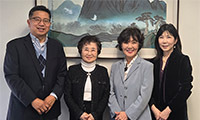
연세대 남가주 동문회… “61주년 맞아 새로운 도약”
연세대학교 남가주 동문회 제50대 회장으로 취임한 권기숙 회장이 신임 회장단과 함께 본보를 방문해 향후 동문회 운영 방향과 비전을 밝혔다. 1…
LA 북부한인회, 글렌데일 시청서 ‘한인의 날’
LA 북부한인회(회장 박승목)는 미주 한인 이민 123주년 기념 ‘미주 한인의 날’을 맞아 지난 13일 글렌데일 시청에서 열린 한인의 날 선포…
‘전통 실크등의 아름다움’
LA 한국문화원이 경상남도 진주시와 함께 ‘한국의 빛: 진주 실크등 전시회’를 1월15일부터 2월28일까지 개최한다고 밝혔다. 이번 전시는 문…
코윈 퍼시픽 LA 신년회·이사장 취임식
세계한민족여성네트워크(KOWIN) 퍼시픽 LA 지부(회장 조미순)는 지난 7일 LA 용수산에서 신년회 및 이사장 취임식을 개최했다. 참석자들은…
많이 본 기사
- 장동혁, 한동훈 제명 의결 잠시 멈췄지만…국힘 내홍 ‘일촉즉발’
- 장동혁, 국회서 단식 돌입…통일교·공천헌금 ‘쌍특검’ 요구
- 경찰, 김경 ‘1억 공천헌금 수수 의혹’ 강선우 20일 소환 통보
- 현대 팰리세이드, ‘2026 북미 올해의 유틸리티 차량(North American Utility Vehicle of the Year™)’ 선정
- 尹 내란재판 첫 결론 ‘체포방해’ 1심 선고 생중계…법원 허가
- 모기지 보험료 인하·다운페이… 올해 알아 둘 보조 프로그램
- 美, 75개국 국민에 이민비자 중단…… 1
- 통일교 윤영호 접견·천정궁 일대 압수수색…합수본 본격수사
- LA “단속 요원 오지마” ‘ICE 프리존’ 조례 추진
- 한인타운 다울정 인근 ‘보행자 친화 거리’ 된다
- 트럼프, ‘피난처’ 지자체에 “연방 지원금 끊겠다”
- 75개국 대상 이민비자 ‘전면 중단’
- 협상 결렬되자 무력시위? 덴마크·나토, 그린란드 병력 파견
- 버라이즌 통신망 ‘먹통’ LA 등 한때 서비스 장애
- 미, 개입 임박했나… “카타르 미군기지 일부 철수 권고”
- 주택가 공놀이에 벌금·징역까지?
- 서민들만 죽어나네
- 이민진 작가 새 장편 ‘아메리칸 학원’ 출간
- 태국 고속철 공사장 열차 탈선… 최소 25명 사망
- 사기 피해 방지하려면… 시도 때도 없이 걸려오는 스팸 전화·문자 ‘심각’
- 워싱턴 인사이트… 올 중간선거 연방의회 ‘대폭 물갈이’ 예고
- 이소룡 기념 우표 나온다… 내달 첫 공개 행사
- LA 레이커스, 애틀랜타 완파하고 3연패 탈출
- ICE 요원 총격 관련 연방검사들 줄사직
- 타운 인근 세인트 빈센트 병원, 홈리스 지원센터로
- LA 교육원, 뿌리교육 온라인 학예회
- “트럼프, 이란 군사개입 경고 속 美항모전단 중동으로 이동”
- 선 넘은 스타벅스 직원 경찰에 ‘돼지 그림’ 해고
- 한인 주점서 총격살인극 용의자 2개월 만에 체포
- 가주 ‘발의안 50’ 선거구 재조정 확정
- “PGA 투어에 중요한 의미” 우즈, 켑카 복귀에 긍정 평가
- ‘ICE 총격’ 사망자 유족, 조지 플로이드 사건 법률사무소 선임
- 트럼프 “우크라 종전 걸림돌은 젤렌스키…푸틴은 협상 준비돼”
- 마인츠, 하이덴하임 2-1 꺾고 ‘꼴찌 탈출’
- 이준구 사범 1월 ‘이달의 재외동포’
- 이란 26세 남성 사형집행 연기된듯… “내일까지 교수형 없을 것”
- AI 잘못 사용하면 우상화, 텍사스주 밀러 목사 경고
- 아프리카 선교 현장 방문단 모집
- 머스크 “테슬라 FSD 판매 중단…월 구독제로만 제공”
- 이통사 버라이즌, 미 전역서 서비스 장애
- 제123주년 미주 한인의 날 기념식
- <종교인 칼럼> 장준식 목사/ 밀피타스 세화교회
- 콜롬비아 대통령 “트럼프와 미국서 2월 3일에 만날 예정”
- 맘다니,“뉴욕시에 대한 공격”석방 촉구
- 미주한인의 날” 기념 결의안 선포
- 미 재무, 원화약세 우려 “한국경제와 부합 안해”
- 출가자 수 5년째 100명 밑돌아
- SF 기독대학교 ‘성장 발전’ 기대
- 겨자씨선교회, 올해부터 아틀란타중심 활동
- 모기지 금리 인하와 주택 시장의 변곡점
1/5지식톡

-
 한국 안경을 무료 배송으로 받아보실…
0
한국 안경을 무료 배송으로 받아보실…
0안녕하세요. 서울 안암동에 위치한 ‘보고싶다 안경원’입니다.저희는 다년간 한국 고객분들께 착용감 좋은 안경테와 한국안경브랜드,고압축 도수 렌즈를 합리적인 가격에 제공해온 안경 전문점입니다.이번에 해외 배송이 가능해…
-
 미 육군 사관학교 West Poin…
0
미 육군 사관학교 West Poin…
0https://youtu.be/SxD8cEhNV6Q연락처:wpkapca@gmail.comJohn Choi: 714-716-6414West Point 합격증을 받으셨나요?미 육군사관학교 West Point 학부모 모…
-
 ☝️해외에서도 가능한 한국어 선생님…
0
☝️해외에서도 가능한 한국어 선생님…
0이 영상 하나면 충분합니다!♥️상담신청문의♥️☝️ 문의 폭주로 '선착순 상담'만 진행합니다.☎️ : 02-6213-9094✨카카오톡ID : @GOODEDU77 (@골뱅이 꼭 붙여주셔야합니다…
-
 테슬라 자동차 시트커버 장착
0
테슬라 자동차 시트커버 장착
0테슬라 시트커버, 사놓고 아직 못 씌우셨죠?장착이 생각보다 쉽지 않습니다.20년 경력 전문가에게 맡기세요 — 깔끔하고 딱 맞게 장착해드립니다!장착비용:앞좌석: $40뒷좌석: $60앞·뒷좌석 …
-
 식당용 부탄가스
0
식당용 부탄가스
0식당용 부탄가스 홀세일 합니다 로스앤젤레스 다운타운 픽업 가능 안녕 하세요?강아지 & 고양이 모든 애완동물 / 반려동물 식품 & 모든 애완동물/반려동물 관련 제품들 전문적으로 홀세일/취급하는 회사 입니다 100% …
케이타운 1번가
오피니언
 한 영 재미수필가협회 회장
한 영 재미수필가협회 회장 [한영의 독서칼럼] 햇살을 향해 헤엄치기
 이규민 한식진흥원 이사장
이규민 한식진흥원 이사장 [로터리] 시간을 담그는 문화, 한국의 장
 이상훈 서울경제 정치부장
이상훈 서울경제 정치부장 [여명] 망국병 ‘진영 논리’
 허경옥 수필가
허경옥 수필가 [윌셔에서] 숲의 숨으로
 이영태 / 한국일보 논설위원
이영태 / 한국일보 논설위원 [지평선] 조롱받는 72만 ‘쉬었음 청년’

[왈가 왈부] 김경·강선우 뒷북 출금… ‘수사 뭉개기’ 의심 살 만하네요
 정숙희 논설위원
정숙희 논설위원새로 나온 이상한 식품 피라미드
 데이빗 이그나티우스 워싱턴포스트 칼럼니스트
데이빗 이그나티우스 워싱턴포스트 칼럼니스트 [데이빗 이그나티우스 칼럼] 그린란드에 대한 트럼프의 위험한 집착
 김동찬 시민참여센터 대표
김동찬 시민참여센터 대표 [미국은 지금] 침팬지의 그루밍과 인간의 민주주의
1/3지사별 뉴스

“뉴욕주민 생활비 부담 확 줄이겠다”
▶ 자동차·주택 보험료, 공공요금 인하뉴욕주가 무상보육 확대와 임차인 보호, 공공요금 규제 강화 등을 올해 주요 역점 정책으로 정하고 뉴욕주민…
‘내란 우두머리’ 윤 전 대통령에 사형 구형

연방의회서 “한인 위상·한미동맹 제고” 한목소리
한인 이민자들이 미국에 도착한 123주년을 기념하고 한인들의 미국 사회에의 기여를 알리는 ‘제 21회 미주 한인의 날’ 행사가 13일 연방의회…
한국학교 방향성 재정립 모색

트럼프 “美시민에 사기친 귀화 이민자, 국적 불문 시민권 박탈”
도널드 트럼프 대통령은 13일 “소말리아든 어디 출신이든, 귀화 이민자 중 우리 시민들을 상대로 사기를 쳐 유죄 판결을 받으면 시민권을 박탈할…
SF 기독대학교 ‘성장 발전’ 기대

오늘 하루 이 창 열지 않음 닫기 




























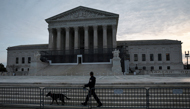




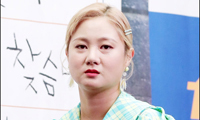
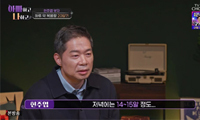















.png)


댓글 안에 당신의 성숙함도 담아 주세요.
'오늘의 한마디'는 기사에 대하여 자신의 생각을 말하고 남의 생각을 들으며 서로 다양한 의견을 나누는 공간입니다. 그러나 간혹 불건전한 내용을 올리시는 분들이 계셔서 건전한 인터넷문화 정착을 위해 아래와 같은 운영원칙을 적용합니다.
자체 모니터링을 통해 아래에 해당하는 내용이 포함된 댓글이 발견되면 예고없이 삭제 조치를 하겠습니다.
불건전한 댓글을 올리거나, 이름에 비속어 및 상대방의 불쾌감을 주는 단어를 사용, 유명인 또는 특정 일반인을 사칭하는 경우 이용에 대한 차단 제재를 받을 수 있습니다. 차단될 경우, 일주일간 댓글을 달수 없게 됩니다.
명예훼손, 개인정보 유출, 욕설 등 법률에 위반되는 댓글은 관계 법령에 의거 민형사상 처벌을 받을 수 있으니 이용에 주의를 부탁드립니다.
Close
x